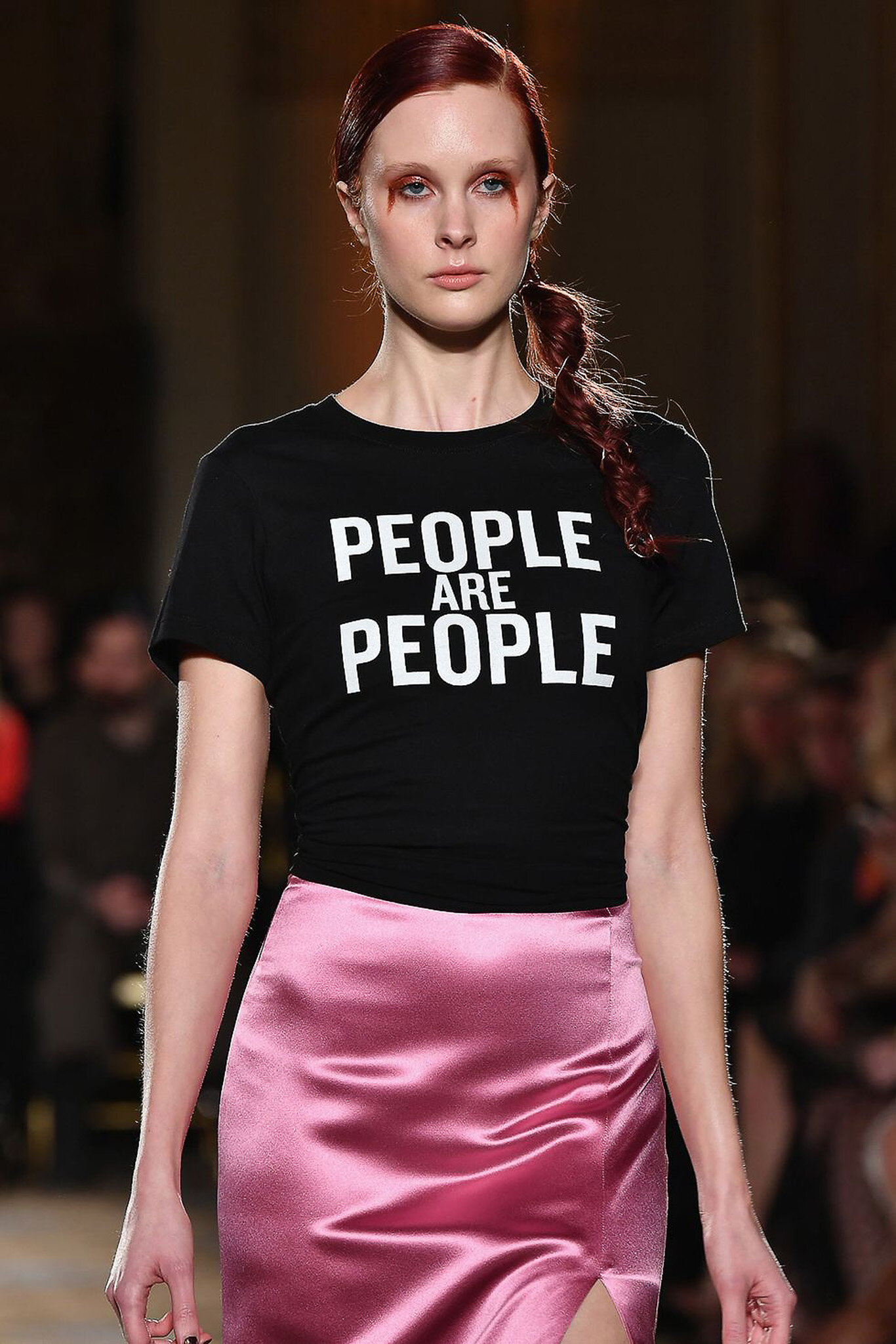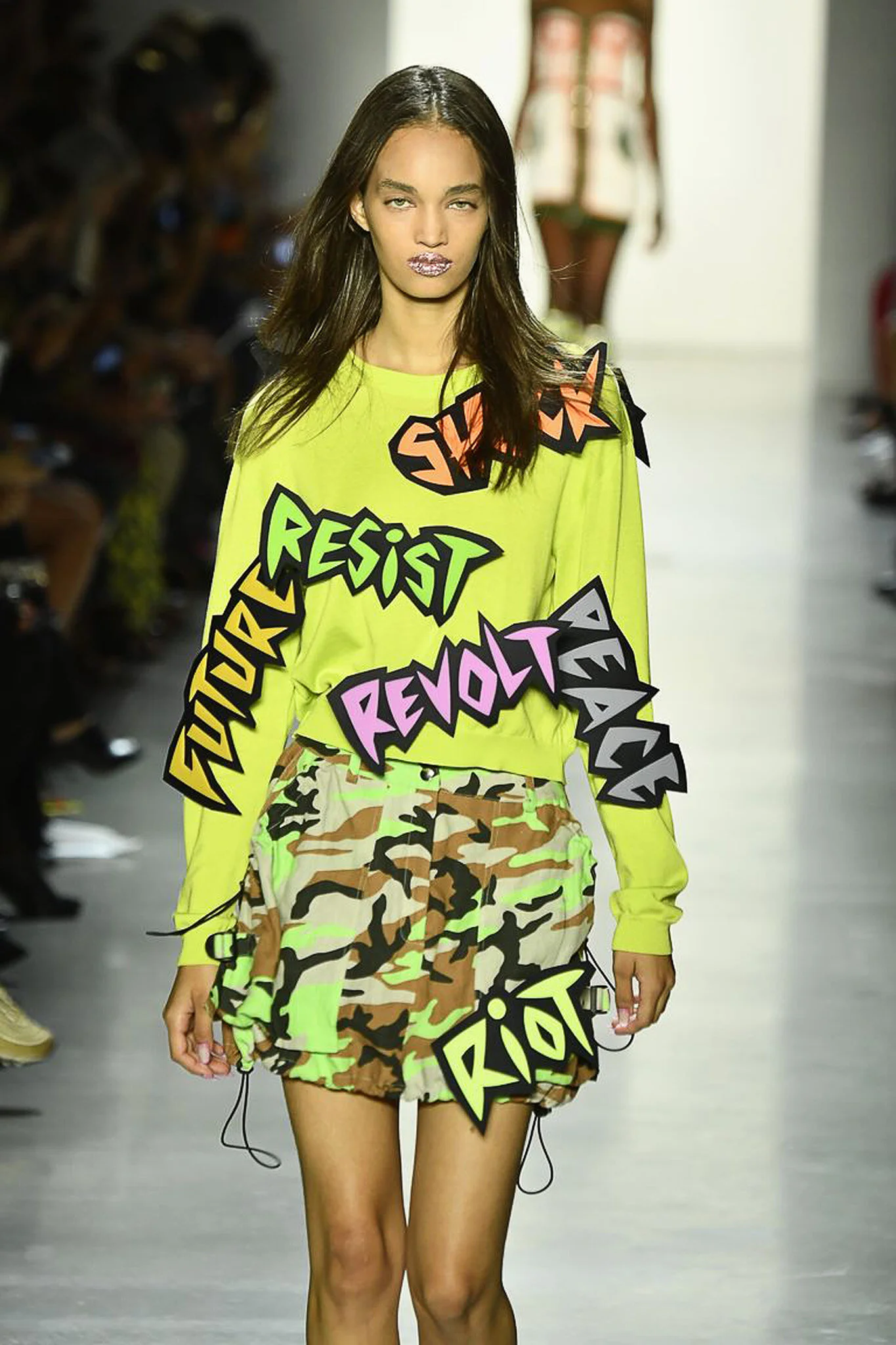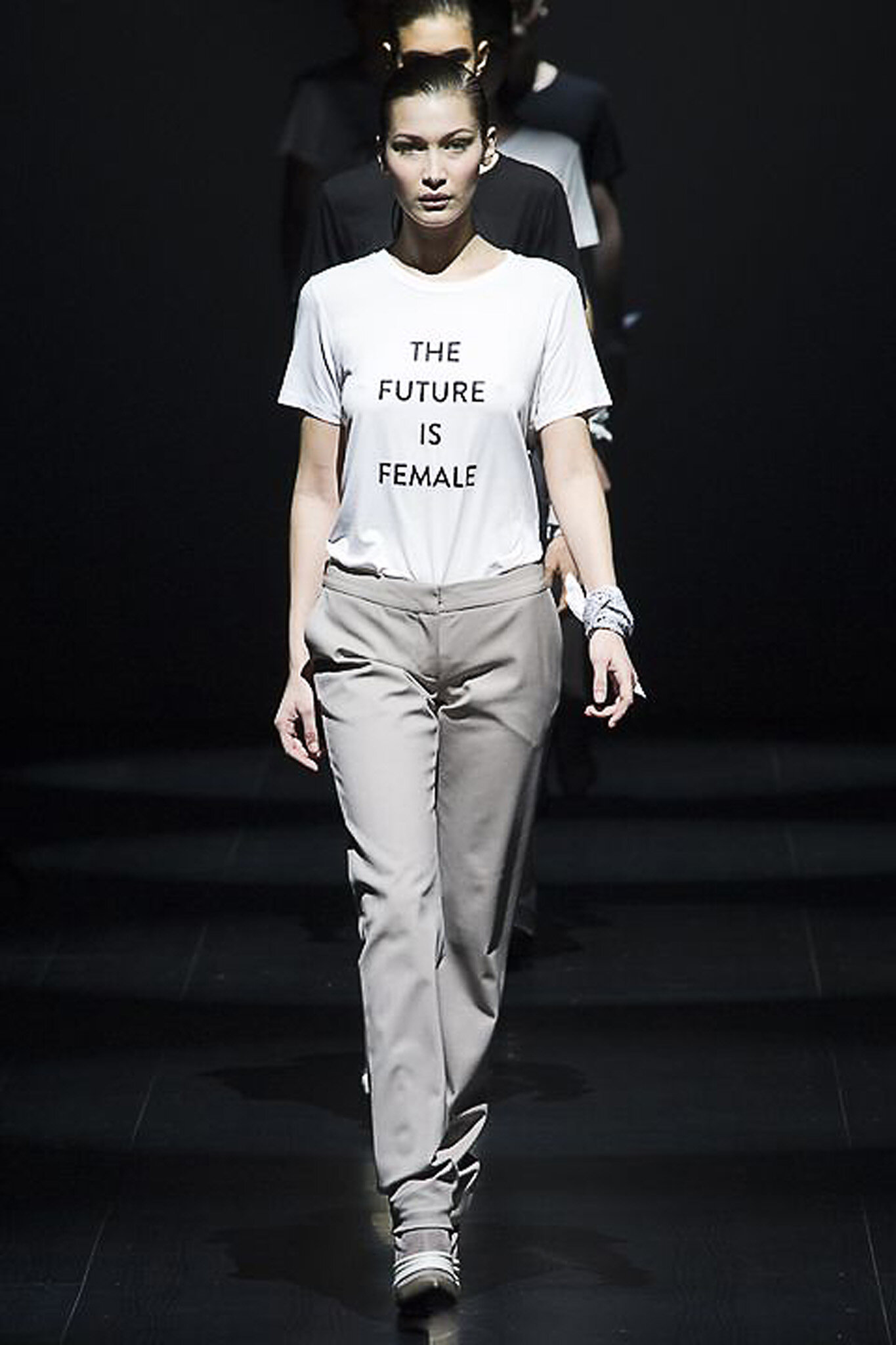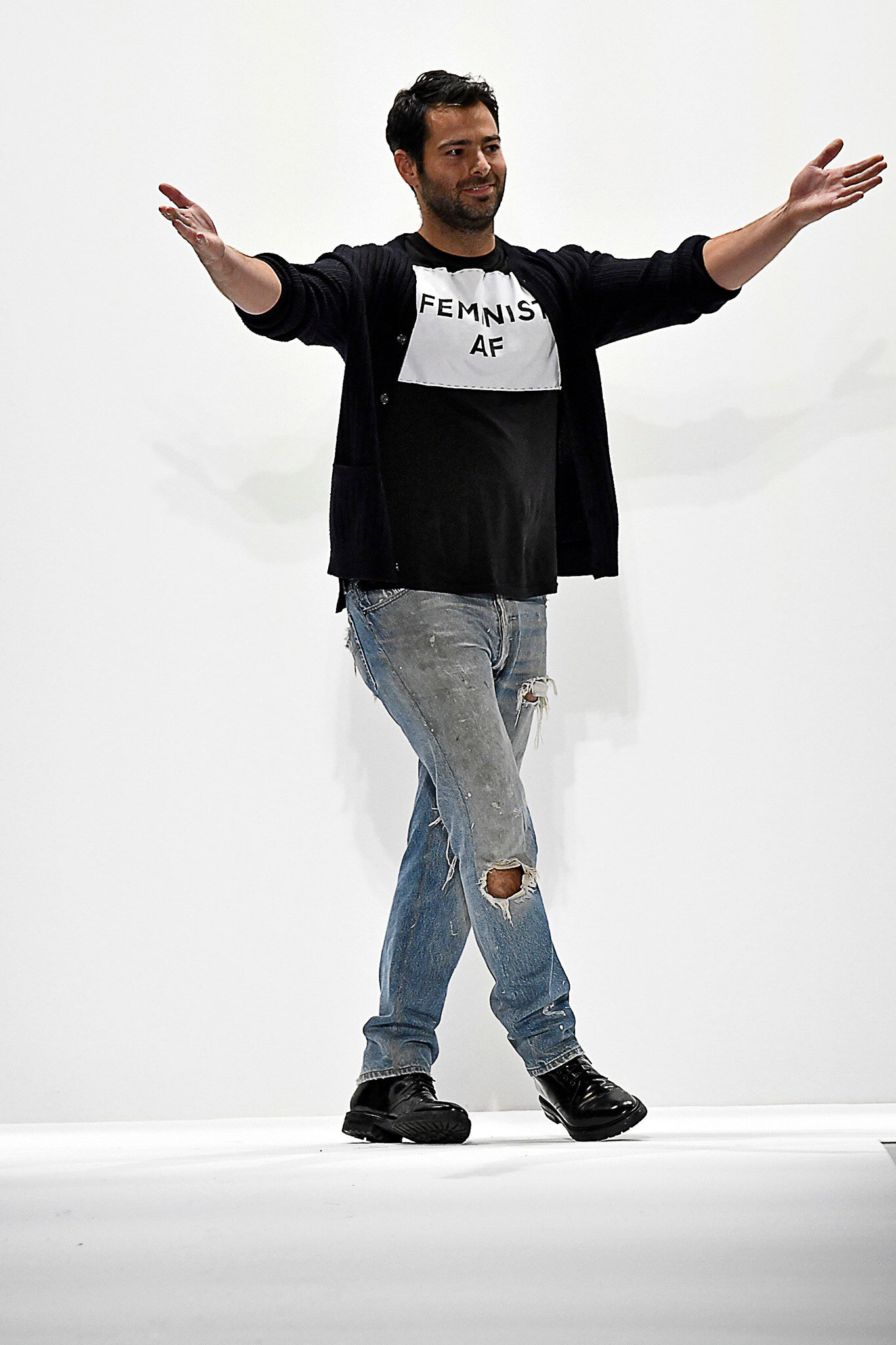Designers Who Have Used Their Platform For Making Political Statements
Over the years, it has become more ordinary for designers to use their massive platforms as an outlet to make necessary, and important, political statements. Just a few nights ago, we celebrated fashion’s biggest night out. The MET Gala had a theme of “American Independence,” which was paired with the first of the two-part Costume Institute Exhibition, “In America: A Lexicon of Fashion.” The curator of the Met’s Costume Institute, Andrew Bolton, explained to Vogue that he believes it is time to reexamine American identity through the lens of recent social justice movements occurring in America (https://www.vanityfair.com/style/photos/2021/09/met-gala-2021-best-dressed-american-independence-theme-red-carpet).
Designer Aurora James teamed up with Alexandria Ocasio-Cortez to send a message through a statement white, off the shoulder gown, with the message “Tax the rich” sewn into the back in a bright red embellishment. This gown caught much attention on social media as well as the red carpet. AOC proceeded to follow up on Instagram with the caption, “The time is now for childcare, healthcare, and climate action for all. Tax the rich.”
Supermodel Cara Delevinge walked the red carpet Monday evening wearing a custom all white outfit designed by Dior’s Maria Grazia Chiuri. Delevingne and Chiuri worked together to create a look inspired by female empowerment and sexuality. Dior’s creative director Maria Grazia Chiuri has created designs that deliver a message about women's rights and feminism since she appointed to her role in 2016.
Christian Siriano is a designer who is well known for speaking out against current political issues, and he took that to the runway during his Fall/Winter 2017 collection. Models strutted the runway wearing t-shirts that read, “People are People,” which reflected on President Donald Trump’s verbal attacks on undocumented citizens in the United States. Siriano also stands up against the lack of diversity within the fashion industry and is sure to include models of all different races and sizes during each of his collections.
Kerby Jean-Raymond, a young, rising designer, is prone to dedicating his shows and designs to recognition of the beauty of Black Americans. He created a series of graphic pieces that focused on Black social injustices. One of the t-shirts he created had a message written on it that read “Stop calling 911 on the culture,” which referenced white people calling the cops on black people, unjustifiably, and for no reason.
Jeremy Scott is known for his colorful, eye-catching brand Moschino. His platform is recognizable as one of the biggest in the industry. He uses it to address political issues often. During his Spring/Summer 2019 runway show, he made a massive political statement by emphasizing the words, “power, riot, peace, resist, revolt” on his clothing. As he closed the show, Jeremy Scott walked out wearing a white t-shirt that read, “Tell your senator no on Kavanaugh.” Jeremy claims he is advocating for women's rights, LGBTQ rights, and affirmative action.
Mara Hoffman, a well-spoken designer, used the Women’s March Opening Statement during her 2017 FW Show. She invited four national chairs of the Women’s March to attend her show and stand in front of the audience to deliver a powerful speech on unity and acceptance. Before the commencement of the fashion show, these women raised their fists in a symbol of power for the under-represented and undocumented, and for the women who cannot show up. Hoffman’s designs were inspired by “women whose songs are not yet sung, the allies, the named and the nameless.”
Similar to Mara Hoffman, Tracy Reese, a designer, is heavily involved in the celebration of the strength of creativity in women, femininity, and all of women’s assets. Reese welcomed four female poets to perform their work at her fashion show in 2017. One of the poets, Aja Monet, performed during the Women’s March on Washington as well.
In fall 2017, Prabal Gurang showed a stellar collection on the runway that left an iconic message that is still mentioned today in fashion. He sent models down the runway wearing t-shirts with messages, for instance, reading, “yes, we should all be feminists,” “we will not be silenced,” “the future is female,” “girls just want to have fundamental rights,” and “revolution has no borders.” Gurang has also taken an approach to the lack of body diversity within the fashion industry by sending non-sample size models down the runway. He also incorporated white bandanas into the show for the models to wear, which signified inclusivity, acceptance, and the support of refugees.
Designer Johnathan Simkhai wore a -shirt with a simple, but powerful, message while closing his show: “Feminist AF.” He also gave front row attendees white t shirts with “Feminist AF” written across the bust.
Similar to Prabal Gurang, Tommy Hilfiger represented unity by giving models such as Gigi Hadid white bandanas to wear down the runway. He participated in the #TiedTogether initiative, which promotes unity within the country.
Interview by Brielle Italiano, Contributor, PhotoBook Magazine
Tearsheets by Lekha Samala, Graphic Design Intern, PhotoBook Magazine











